Did you know…?
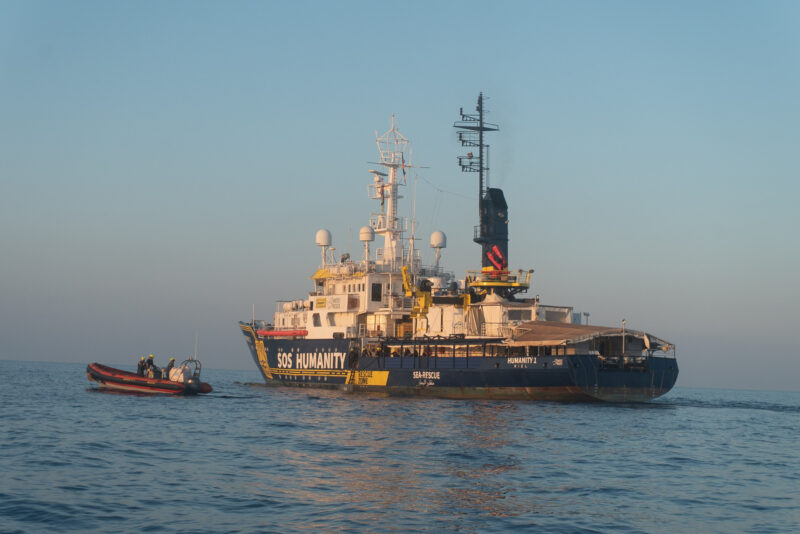
10 questions and answers about our work as a civilian search and rescue organisation.
SOS Humanity lives from all those who, as part of civil society, oppose the deaths in the Mediterranean. They make our life-saving mission possible in the first place. That is why it is of great concern to us to make the reasons, legal and political basis as well as the way of our work transparent. Especially at times when a lot of misleading or false information about civilian search and rescue is circulating, it is all the more important to point out provable facts. Or did you already know:
…why so many people flee across the central Mediterranean at all if this escape route is so dangerous?
The central Mediterranean is the deadliest escape route in the world. But because there are no regular, legal and safe escape routes to the EU, people risk their lives on the dangerous crossing. The reasons for this include wars or armed conflicts in the people’s countries of origin, the threat of forced marriage, persecution, torture or the search for a future with education, dignity and security. Many also flee because of the violence they experience in Libya and Tunisia, because of human trafficking and arbitrary detention under inhumane conditions. A correlation between the presence of rescue ships and the number of departures has been refuted several times by scientific studies. Fewer rescue ships do not lead to fewer refugees, but to more deaths on the run. (LINK)
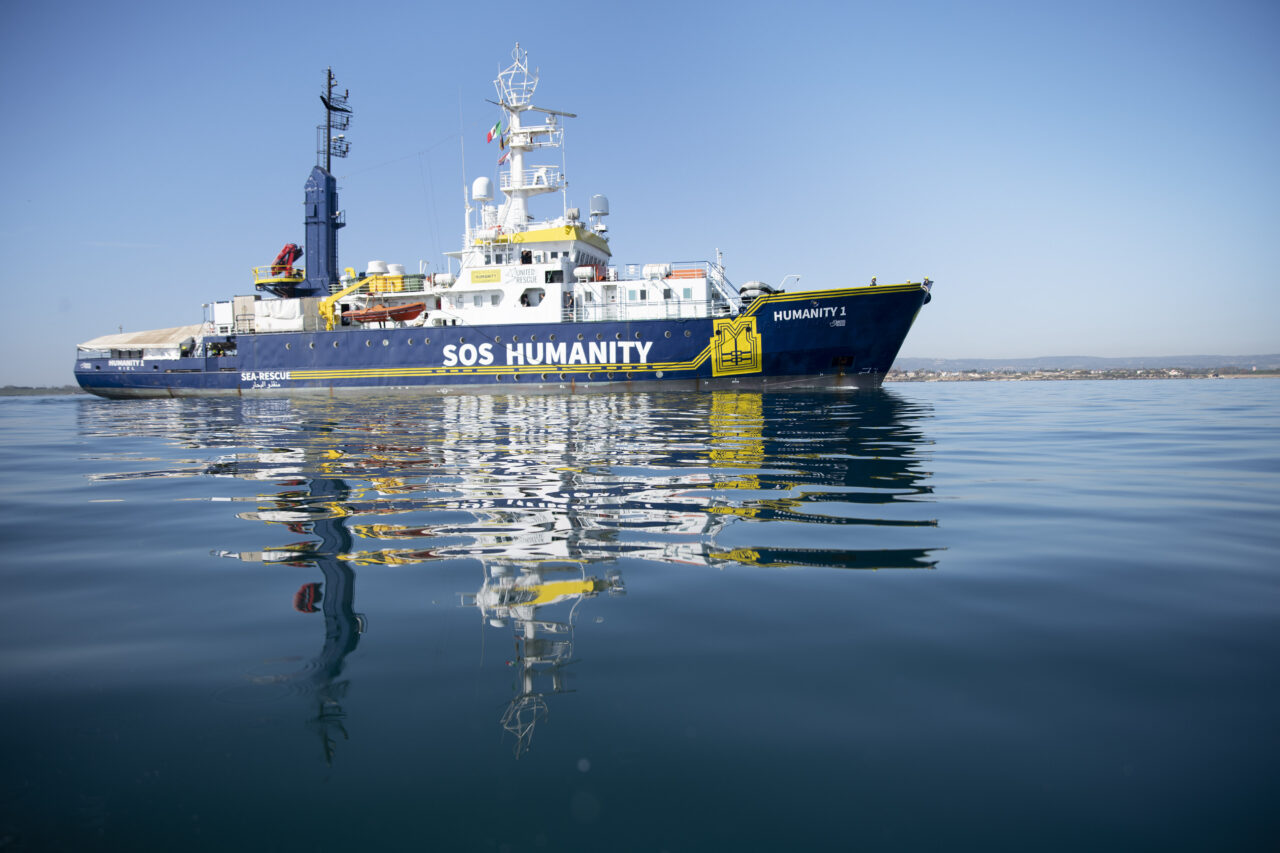
…what it means that the Humanity 1 sails under the German flag?
The flag state of a ship is the country in which an ocean-going vessel is registered or licensed. The flag under which a ship sails is considered the ship’s nationality. The state in question thus has jurisdiction and responsibility for the ship. This means that flag states are responsible for ensuring that all ships flying their flag comply with the duty of rescue at sea and follow the instructions of the competent rescue coordination centres (UNCLOS Art. 98). The assignment of a place of safety is not the responsibility of the flag state, but of the coastal states in whose search and rescue area the rescue has taken place.
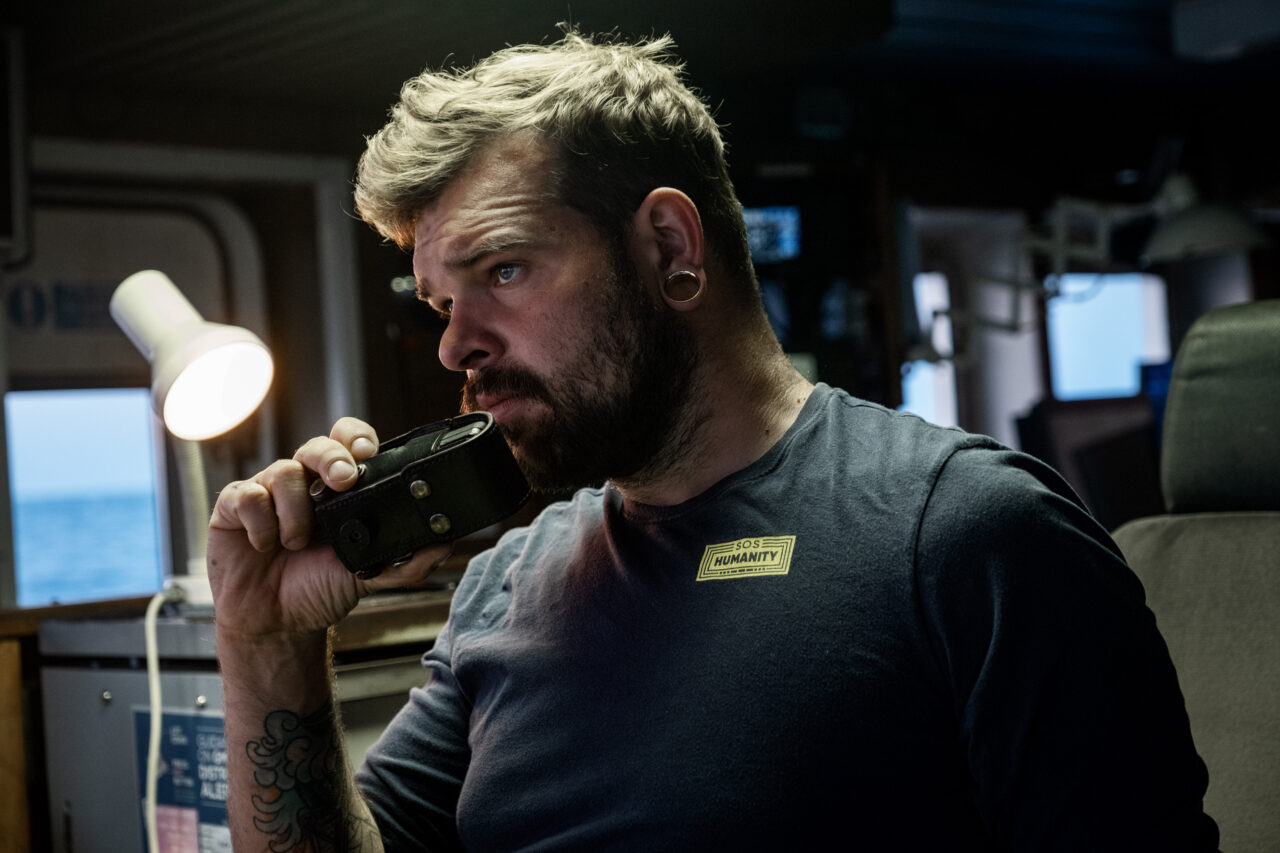
…what a rescue coordination centre is?
Rescue coordination centres are responsible for the efficient organisation and coordination of search and rescue operations within a given sea area. According to the Convention on the Law of the Sea, coastal states are not only obliged to ensure that any person in distress at sea is helped, they must also provide and coordinate the necessary search and rescue units. Rescue coordination centres must be available at all times and have English-speaking staff on duty. In addition to coordinating maritime emergencies, sea rescue coordination centres are also obliged to assign a place of safety for the disembarkation of people rescued from distress at sea.
…how SOS Humanity works with the relevant authorities and rescue coordination centres?
Our crew on board Humanity 1 is in constant contact with the relevant rescue coordination centres during an operation. When the crew is on its way to the area of operation to rescue people from distress at sea, an email is sent out to inform all relevant authorities that it is ready to rescue and to be coordinated in case of distress at sea. The crew also always informs all relevant authorities when reporting, sighting and rescuing a distress at sea. Under international maritime law, every captain is obliged to initiate a rescue, regardless of whether a rescue coordination centre fulfils its duty to coordinate or not. If rescue coordination centres do not react or react too late, leave distress calls unanswered or do not forward them, they are in breach of the Convention on the Law of the Sea.
…which rescue coordination centre is responsible for which area in the central Mediterranean?
The Central Mediterranean is divided into three search and rescue areas by the Convention on the Law of the Sea. Italy, Malta and Libya must ensure the effective coordination of search and rescue operations in their respective areas, including the assignment of a place of safety for the survivors. If the responsible rescue coordination centre does not react, the surrounding coastal states are obliged to take over these tasks.
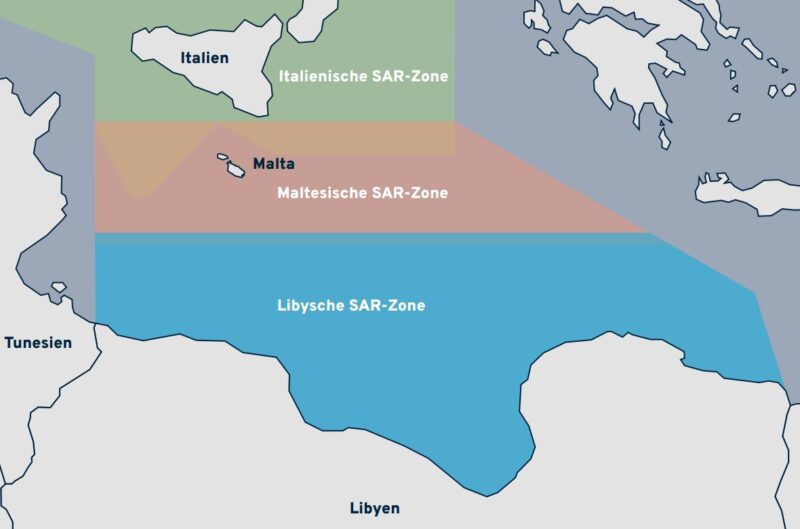
…what happens in the case of a push-back and what happens in the case of a pull-back?
The practice, contrary to international law, of turning back people fleeing at a national border without the opportunity to apply for asylum is known as “push-back”. International human rights and refugee law prohibits turning people back to a state where they face persecution, torture or other serious human rights violations (non-refoulement). Accordingly, coastal states such as Italy and Malta are not allowed to expel or turn back people fleeing without an individual protection assessment. Preventing people from fleeing or forcing them back to the country they are fleeing from is called pull-back. In the central Mediterranean, the so-called Libyan Coast Guard intercepts people fleeing Libya at sea and forcibly returns them. There they are exposed to serious human rights violations. With this practice, Libya violates international human rights and refugee law. European actors are often directly involved in illegal pull-backs, for example when Frontex forwards coordinates of boats in distress to Libya but not to rescue ships in the area. By financially supporting the so-called Libyan coast guard, the EU also indirectly facilitates illegal returns to Libya.
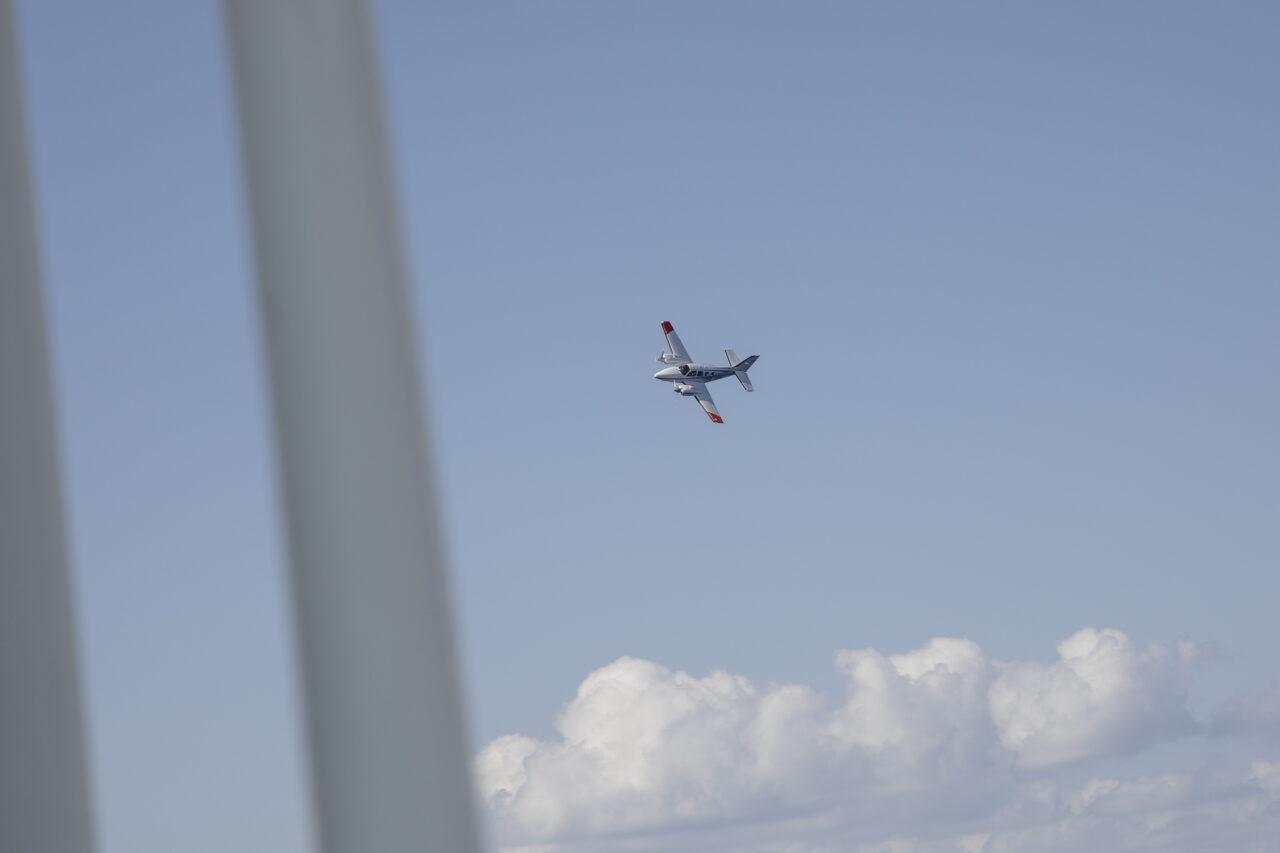
…how the crew of the Humanity 1 becomes aware of sea emergencies in the first place?
Since the European states do not sufficiently fulfil their duty to coordinate distress cases in the central Mediterranean, we depend on the work of other maritime and especially civil society actors. Through the civil emergency hotline for people in distress – Alarm Phone – and the civil aerial reconnaissance with aircraft from Sea-Watch and Pilotes Volontaires, we receive emergency calls from people in distress. However, boats are also often discovered during lookouts, when the crew members scan the sea for distress at sea.
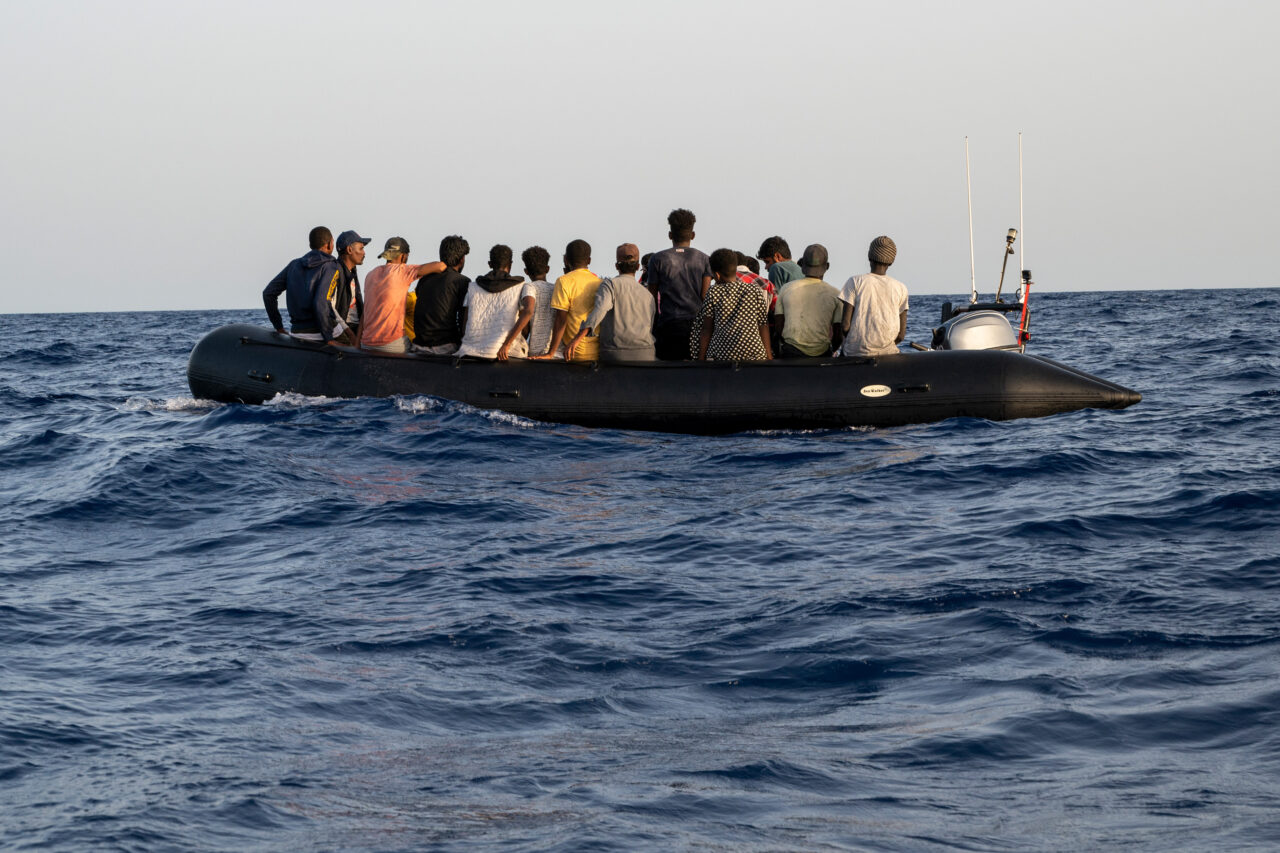
…when people are in distress at sea?
An emergency at sea is when people on board a boat are in immediate distress and cannot get out of it without immediate assistance from outside. Such an emergency situation exists, for example, when a boat is unable to manoeuvre, when the number of people on board exceeds the capacity of the ship or when there is a lack of rescue equipment such as life jackets. The boats that set off from Libya or Tunisia are usually overcrowded, without any rescue equipment and without sufficient fuel. Thus, they are already in distress at sea from the moment they leave the coast. It is our legal and humanitarian duty to rescue all people in distress at sea and bring them to a place of safety – regardless of their nationality, status or the circumstances in which they find themselves.
…what the criteria for a “place of safety” are?
A place of safety, according to Article 2 of EU Directive 656/2014, is “a place where a rescue operation can be considered to have ended. It is also a place where the lives and safety of those rescued are not further threatened and where their basic human needs such as food, shelter and medical care can be met”. The directive further states that the protection of fundamental rights and the principle of non-refoulement must also be taken into account. Neither is the case with countries such as Tunisia or Libya, which is why neither Tunisia nor Libya can be considered places of safety.
…who makes the life-saving work of SOS Humanity possible?
Primarily, SOS Humanity is financed by individual donations and by the support of institutional partner organisations . In accordance with a resolution passed by the German Bundestag at the end of 2022, we received a grant from the federal budget for the first time in the summer of 2023. Many also donate their time: volunteer groups get involved on land and volunteers on board make our rescue missions possible without receiving a fee for their work. They all help to ensure that people in need of protection can be rescued at sea.


